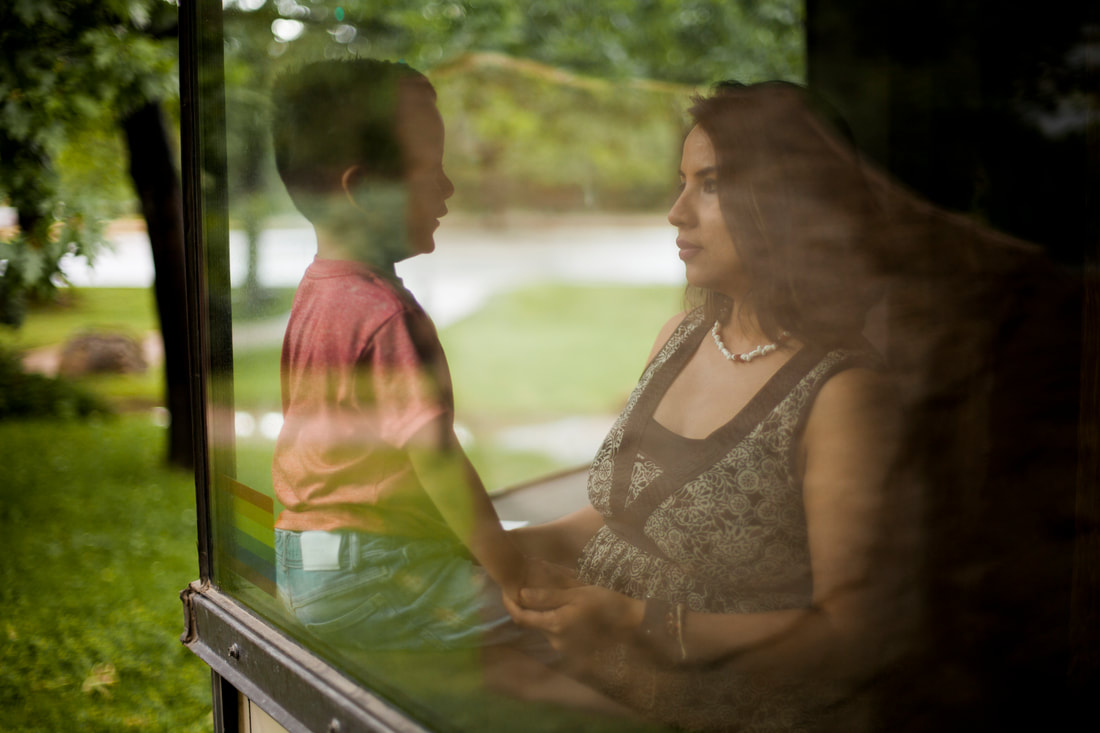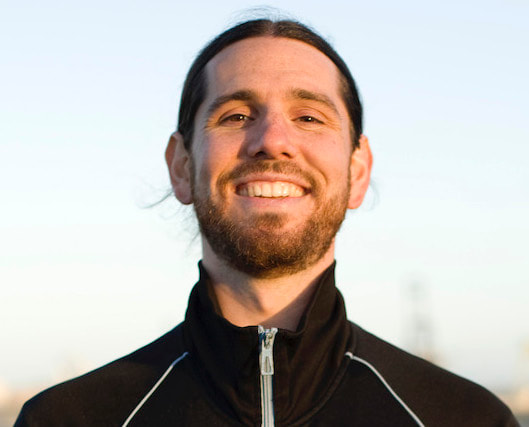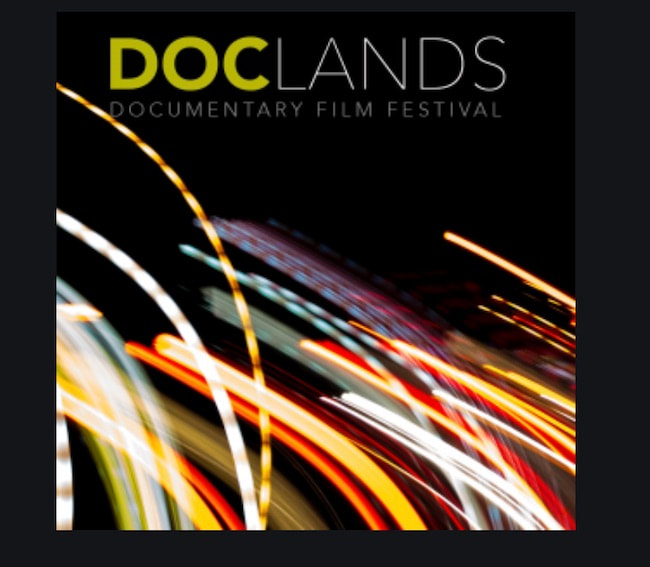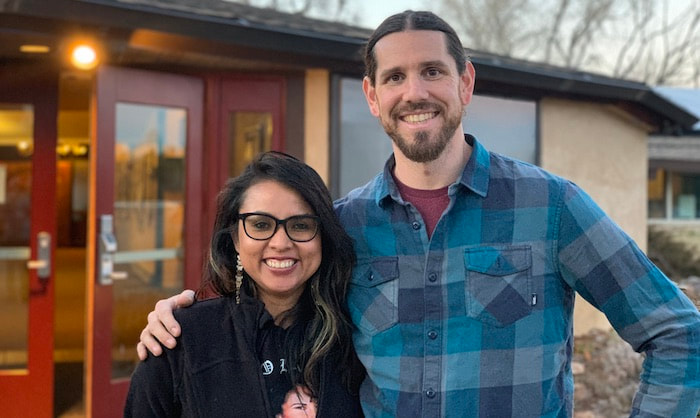 A Bay Area Filmmaker & a Film Festival with a Social Mission at Heart Of all the genres in the film industry today, none quite possibly more than any other is as misunderstood and under appreciated than the documentaries. Despite that, the filmmakers navigating this terrain persisting with unquestionable and laudable levels of commitment to get their stories out there. This type of filmmaking puts more emphasis on educating and inspiring its viewers, over entertaining audiences or pandering to studio execs. Documentaries are a powerful vehicle to spark dialogue and shine a necessary light on important issues and people. San Francisco-based filmmaker Theo Rigby knows firsthand about the challenges inherent in this profession. He is founder of INation Media, a production company with a focus on immigration issues and the immigrant experience in the U.S. Through iNation Media, Rigby gives a platform to immigrant individuals and communities to have their stories told in nuanced narratives rarely seen. Canal Alliance in San Rafael, is a nonprofit champion of immigrants who are challenged by a lack of resources and an unfamiliar environment. Sara Matson, Development Director for Canal Alliance is familiar with and very appreciative of Rigby’s work with immigrant and undocumented communities. Canal Alliance partnered with The California Film Institute to present one of his films, “Waking Dream,” last fall. She got to know him through the project and presentation. She details her impression of him as an artist and the work that he is creating. “It really comes across that he has such care and compassion for the topics that he covers and the subjects of his films. That is such an important framework to come at, and I think for the final product he creates, allows for people who view them, to see that these are complex social issues that every family is experiencing uniquely. It’s different than hearing a news reporter read data, but actually hearing how issues of immigration and policy change are impacting individuals in profound ways.” She also explains that the impact of films is two-fold, in that it’s not only important for non-immigrants or U.S. citizens to get educated about immigrants and situations, but it has special meaning to the communities depicted to see themselves reflected in art. “It’s a very powerful experience for other immigrants that are affected by these issues to see people like themselves and feel their stories are being shared to a wider audience in this way.” For much of the fifteen years he’s been working in the industry, Rigby has been developing a specific documentary called “Sanctuary Rising.” The film is an intimate portrait of two undocumented mothers who go to dramatic lengths to fend off deportation and separation from their families in the United States. It follows the stories of the two women who chose to enter sanctuary at local churches, rather than report to ICE to be deported (inationmedia.com). Although Rigby had hoped to connect with immigrants in the Bay Area that were seeking asylum, the timing didn’t quite work out. “I waited for someone to go into sanctuary in the Bay Area because it’s always easier and less expensive to work locally, if you can,” he explains. Instead, he eventually learned of a woman, Jeanette Vizguerra, that was going into sanctuary in Denver, and then subsequently another woman, also in Denver, Ingrid Latorre. Theo describes Jeanette’s initial situation. “Jeanette went in the first time for 86 days, then she got a stay of deportation for two years. The film follows her while she was out, but she was unable to get legal status within that time period, so she went back into sanctuary.” A stay of deportation is an order that refrains the Department of Homeland Security from removing an immigrant pending their visa application. Jeanette has been back in sanctuary for almost a year. Rigby has gained a lot of ground with the production of “Sanctuary Rising,” but four years and counting, the project is still not completed. Rigby says, like for other indie filmmakers, he’s come up against challenges on many levels, most especially financial obstacles. “I got a small grant early on from the now defunct Hartley Film Foundation, and then I won the California Film Institute’s DocPitch award in 2016. Since then I’ve been self-funding the film, doing it on a shoestring budget, filming everything myself, with some help from interns.” According to the International Documentary Association website, budgets for independent projects can vary greatly. Some projects only raise $10-20k to cover basic hard costs, and others are only ever partially funded, and involve huge contributions of volunteer labor and services. A cluster of funded docs end up in the $350-450k range, although even this range often relies on either a small number of shooting days, a producer/director/writer/cinematographer/editor wearing many hats herself, or various unfunded phases of the process. There is another cluster in the $600-800k range (2019). The “Premium Beat” website attributes much of a documentary filmmaker’s costs to equipment rental and/or purchase, professional labor such as cameral operators, lighting and sound crews and post-production costs, such as video editing and sound mixing. For example of just two of very many expense, the best five cameras recommended to independent filmmakers to purchase range in cost from $1,300 to $6,000. According to wideawakefilms.com, A professional editor will usually cost $1,000 to $2,500 per day, depending on the experience of the editor, the quality of the work as well as the amount of editorial control that you feel you need over the project (Jan. 2019). Helping to bridge some of the financial gap while also giving exposure to worthwhile projects like “Sanctuary Rising,” are film festivals and pitch sessions. Of the nearly three thousand film festivals worldwide, many have come to recognize the relevance of the documentary genre. Some festivals even dedicate documentary segments to the overall program. One such festival and organization is in the heart of the Bay Area. Not only are documentaries an integral aspect of the annual Mill Valley Film Festival (MVFF), but the California Film Institute, the nonprofit agency that curates MVFF, holds a separate annual documentary film festival called DocLands. Separate from DocLands festival, but presented during the festival, is DocPitch, which gives a platform to filmmakers looking to further or complete their projects. Organizers select filmmakers with feature-length documentary projects “in development.” indiefilmhustle.com explains what that term means: In development, a preliminary budget is made, key cast are attached, key creatives are chosen, main locations scouted and multiple script drafts may be written. ... Green-lighting a film means the studio has approved the idea and will finance the project and move into production.(Nov 22, 2019). For DocPitch, participants are expected to give a verbal pitch, present a trailer, and participate in a Q&A with the audience. The audience is comprised of funders, festival representatives, distributors, broadcasters and the general public. All of whom get to select their favorite projects/pitches. Of the 500 entries DocPitch draws, the jury has to narrow the selection down to just five. DocLands Director of Programming, Joni Cooper, explains the selection process and jury mindset. “Quite simply, the jury is looking for a good story told well. One that is unique in its content or vision. Does it invoke emotion or resonate at a deeper level? Is the filmmaker uniquely suited to tell the story or have special access? If it’s a timely story, does the filmmaker have the experience to see it to conclusion? Does the story leave the viewer wanting to know more?” As previously mentioned, Rigby participated in DocPitch a few years ago and won. He underscores the value of pitch sessions in general, and his DocPitch experience specifically. “It’s incredibly helpful, he admits. “The year I won was the first year of DocPitch, and the prize was five thousand dollars. That’s not a lot, but it certainly is helpful. Over the years, I think the organizers realized what is most helpful is getting the contestants more money. As a result, they have increased the cash prize to 25 thousand dollars this year, which is amazing!” Rigby asserts that an increase of that amount can really make a difference. Filmmakers and festival organizers alike realize the importance of festival exposure, especially for the independent directors and documentarians. Organizers, such as those at the MVFF/DocLands are sympathetic to the challenges of these independent filmmakers and the vital role of documentary stories to have a platform. Mark Fishkin, Founder / Executive Director, California Film Institute expounds on the organization’s commitment. “Everyday we are bombarded with “breaking news” stories and a never-ending wall of soundbites. However important these stories may be to our lives, they often feel like they are given the same weight and shoehorned into a never — ending news cycle. All of CFI’s documentary programming allows these important stories to be experienced in depth, whether at the Rafael, MVFF, through CFI Education or DocLands. Stories that can both enlighten and entertain us. In these ways documentaries provide a way of seeing and hearing the world and can give us a deeper perspective of critical issues and a greater appreciation for the “wonderland,” that still surrounds us. Real stories, that touch us, at our core.” Joni Cooper agrees with her colleague, adding her take on the role and responsibility of film festivals. “Festivals can provide huge buzz for films. They get audiences talking, sometimes yelling--whether out of joy, frustration, or outrage – about the films that touched or resonated with them about issues that bind us together through shared human experience. Word travels fast through social media, especially authentic and passionate word.” As challenging and sometimes disheartening as the process can be for filmmakers like Rigby, they never seem to lose sight of the big picture as well as the satisfaction of conveying meaningful stories versus personal sacrifice. It is in that selfless spirit that they continue to create, educate and inspire. Working hand in hand with them are agencies, like DocLands Documentary Film Festival to promote domestic and global stories and storytellers. This year’s DocLands Film Festival has been postponed. Go to the website for reschedule details. www.doclands.com To learn more about Theo Rigby’s documentary project, follow its progress or to support the film go to http://inationmedia.com/sanctuary/ For details on the mission and accomplishments of Canal Alliance, go to their website at canalalliance.org or call 415.454.2640
2 Comments
Nish
4/22/2020 08:52:52 am
Very insightful! Thank you for posting :)
Reply
Natalie E Wolfman
4/23/2020 07:11:45 pm
Thank you for shedding light on the valuable contributions of documentaries and the challenges faced by the filmmakers. I began devouring documentaries after subscribing to HBO. Then also found amazing documentaries on Kanopy (unfortunately NYPL no longer has a partnership with the service).
Reply
Leave a Reply. |
AuthorPaula Farmer Archives
September 2022
Categories |



 RSS Feed
RSS Feed